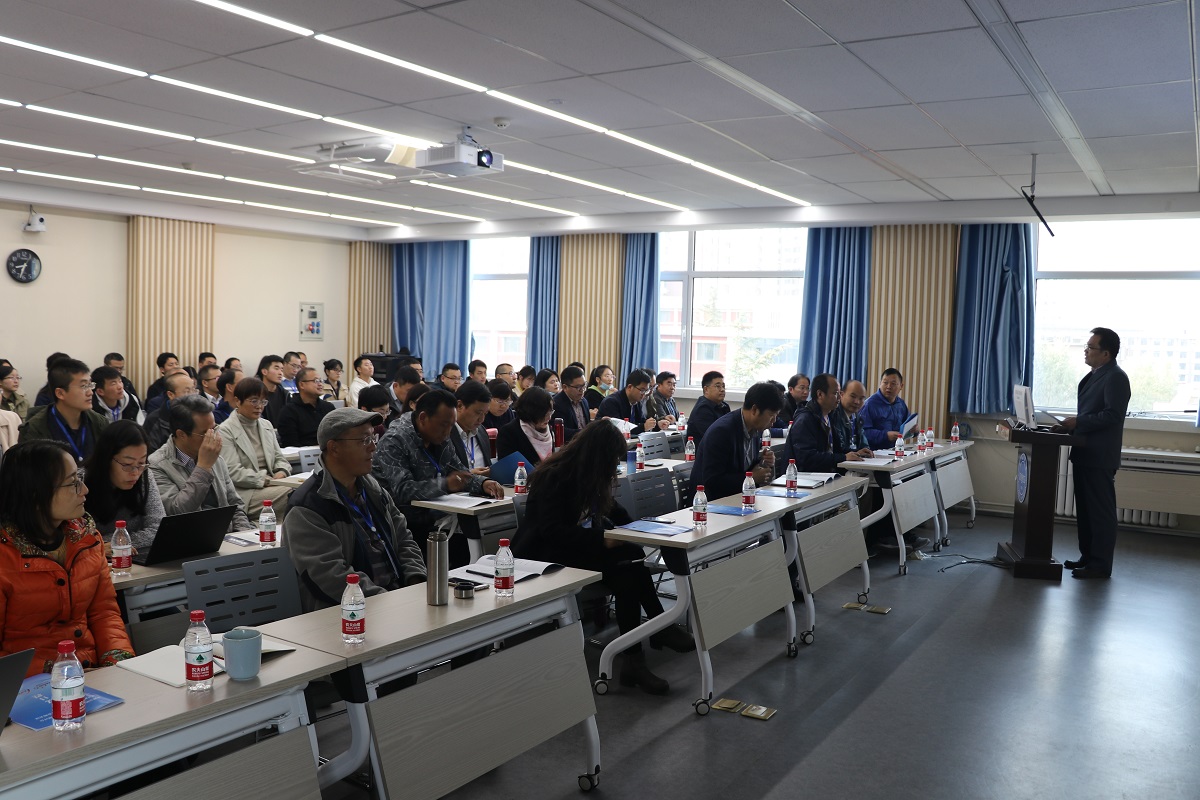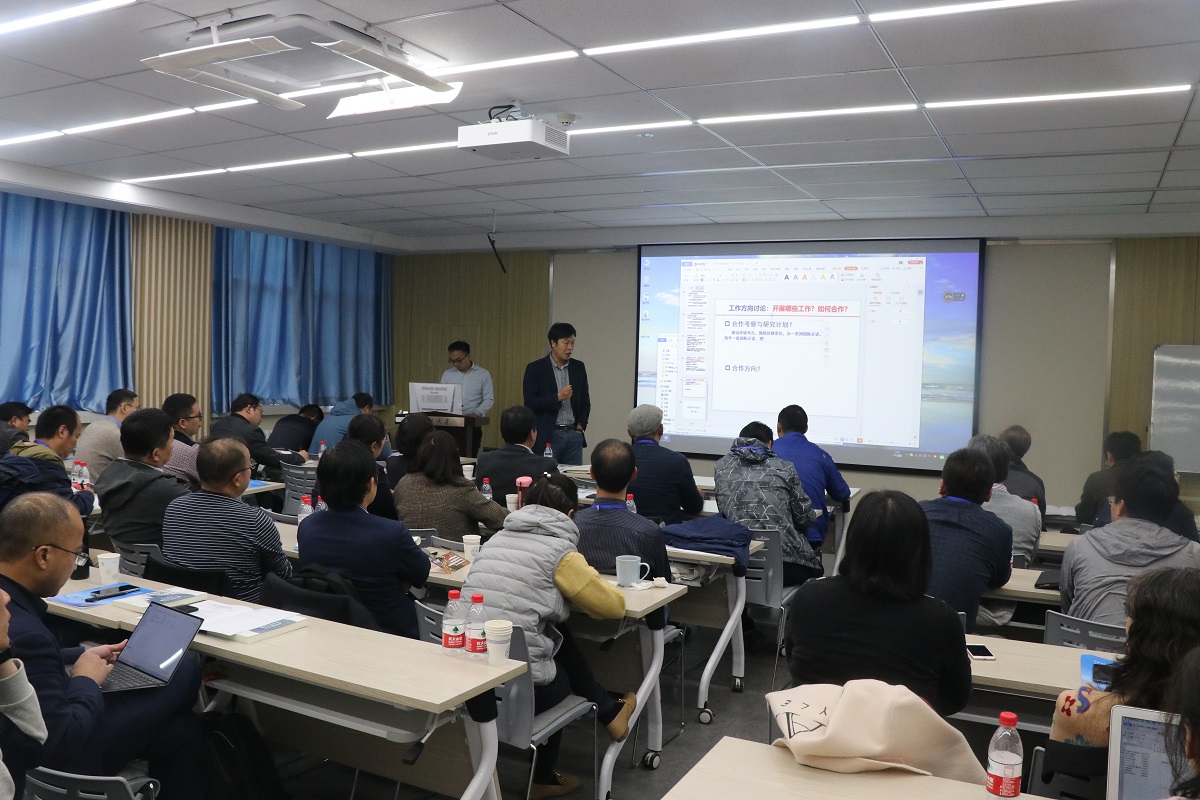From October 17th to 18th, the "Silk Road Civilization Change and Living Environment Change Seminar, and the Second and Third Working Group Meetings of the Association for Trans-Eurasia Exchange and Silk-Road Civilization Development (ATES)" was held in the Lecture room 502, Qilian Building, Lanzhou University. The conference was hosted by Lanzhou University, Association for Trans-Eurasia Exchange and Silk-Road Civilization Development (ATES) and the Environmental Change and Environmental Archaeology Professional Committee of the Chinese Geographical Society, undertook by the College of Earth and Environmental Sciences, Key Laboratory of Western China’s Environmental Systems (Ministry of Education) and Northwest and Central Asia Environmental Archaeology Center, and co-organized by the West Asia (Iran) Center of the Institute of Tibetan Plateau Research, Chinese Academy of Sciences and the “One Belt and One Road” Alliance of International Science Organizations (ANSO). This conference was convened by Professor An Chengbang and Professor Dong Guanghui. More than forty scholars attended the conference.

The opening ceremony of the meeting was presided over by Professor Dong Guanghui, and Yang Yongchun, deputy dean of the College of Earth and Environmental Sciences, delivered a welcome speech, introducing the general situation of the geography of Lanzhou University, and expressing welcome and thanks to the experts for coming. Later, researcher Hou Juzhi introduced the background and significance, objectives and tasks, organizational structure, and future development plans of ATES.

The following academic report session has three themes, namely "Progress in Silk Road Archaeology and History Research", "Silk Road Civilization Evolution and Environmental Changes", and "Progress in Multidisciplinary Method Application".
Then, Academician Chen Fahu presided over the discussion session of "ATES Future Work Plan". Professor Dong Guanghui introduced the construction goals, progress made, and major problems and difficulties faced by the second and third working groups of ATES. Afterwards, the participating experts conducted in-depth discussions on issues such as organizational construction, future work plans and efforts.
Finally, Academician Chen Fahu made a concluding speech, emphasizing the need to strengthen ties with countries along the Silk Road, especially universities and scholars from research institutes in Central Asia; strengthen cooperation among working group members to jointly promote understanding of key scientific issues; increase publicity for ATES, enhance its influence, and make a strong contribution to serving national and local development.

Conference background:
Association for Trans-Eurasia Exchange and Silk-Road Civilization Development, ATES for short, is initiated and established by the Chinese Academy of Sciences under the framework of the “One Belt and One Road” Alliance of International Science Organizations.ATES is a scientific research alliance formed by a number of scientific research institutions at home and abroad, aiming to understand Paleolithic culture and human proliferation, Neolithic civilization and agricultural communication, Silk Road towns and route succession, Silk Road civilization and science and technology exchanges, as well as major scientific issues such as environmental changes and the evolution of the Silk Road civilization. Focusing on the above goals, ATES has set up 5 working groups, which are responsible for coordinating the international exchanges and cooperation of related disciplines, forming an international scientific research alliance with substantive cooperation, and serving the "Belt and Road" initiative. The contacts of the second working group are Professor Guanghui Dong, Researcher Yang Xiaoyan, and Professor Juzhong Zhang, and the contacts of the third working group are Professor An Chengbang, Professor Yang Weibing, and Associate Professor Xi Huidong.